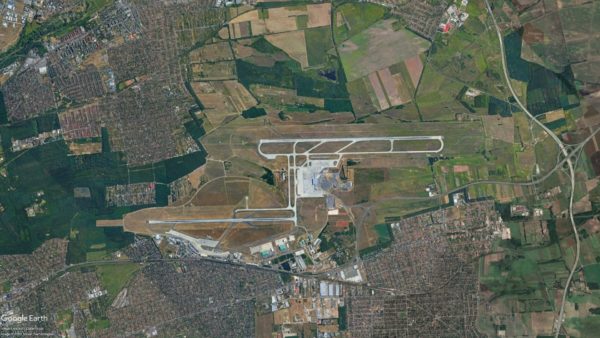Deportation to Serbia after Arriving in Hungary by Plane
| 20.12.2019 | From Budapest to Subotica | No Name Kitchen | 46.1663498, 19.5556147 | Hungary | Serbia | no | yes | no | no | no | no | 18 - 50 | 3 | Afghanistan | detention, fingerprints taken, papers signed | Unknown | no violence used | Multiple Hungarian officers |
[While BVMN partners - in the case No Name Kitchen - typically only collect reports on incidents which occurred within the previous month, we have included this case in which there is a nearly six month separation between report and incident due to the particular cruel and unusual push-back which it describes]
A 24 year Afghan man, his sister (18 years of age) and mother (50 years old) were illegally and arbitrarily expelled from Hungary to Serbia after arriving at Budapest Ferihegy International Airport airport by plane from Dubai.
The young man who made the report had previously worked in the humanitarian aid field and was a social activist in Afghanistan; according to the respondent, he and his family were forced to flee when threats were made against his sister. They travelled to Dubai and flew from there to Budapest Ferihegy International Airport in Hungary on Flight UAE111 on December 19, 2019. The family arrived to the airport in Budapest at 11:31 in the morning at Terminal 2B. The family had travelled on fake passports and while the respondent and his mother were able to clear immigration controls in the airport without problems, the Hungarian officials recognized his sister’s passport as fake and began to question her. The respondent immediately returned to her side and proclaimed his passport as fake as well.
[caption id="attachment_15101" align="aligncenter" width="600"] Budapest Ferihegy International Airport, where the family was initially detained[/caption]
They were taken into detention, “a small jail” within the airport [Budapest Ferihegy Airport maintains a short to medium term Transit Zone Holding Facility] and questioned until about 1:00 am. The respondent described being asked if he wanted to stay in the country [to claim asylum], and he confirmed both verbally and in writing. The next morning they were transferred to another center, the exact location / type of which is unknown. Lawyers and translators were brought in, however, the reporter alleges that the translators did not translate correctly; he tried to speak in English, but was told that only what the translator translated would be taken into consideration.
He repeated multiple times that he wanted to stay there. At first the Hungarian authorities agreed and said he would be in closed camp. He agreed to this. Then, in the evening at five or six o’clock he was told he could not stay and would be deported to Serbia. He questioned why he was being deported to Serbia and said that he had not come from there. Hungarian authorities told him to stop speaking and not make problems or they would jail him for a month and then deport him. He was also forced to sign documents that he did not understand, and then told they were deportation documents.
Sometime after this, Hungarian officers drove the group to the Serbian border, near Subotica. A second group of officers waited at the border, gave them their phones back and told them:
“This is Serbia, you can go there.”
Previously, the man making the report said, he knew nothing of Serbia. He and his family entered the country only with dollars and he could not even buy a bottle of water for his mother. That first night they had to sleep in the wilderness and the next day friends in Afghanistan researched where to go. He went to Belgrade and spoke with officials and told his story. He was only told that Hungary is bad, but was not offered further recourse for this injustice.
Budapest Ferihegy International Airport, where the family was initially detained[/caption]
They were taken into detention, “a small jail” within the airport [Budapest Ferihegy Airport maintains a short to medium term Transit Zone Holding Facility] and questioned until about 1:00 am. The respondent described being asked if he wanted to stay in the country [to claim asylum], and he confirmed both verbally and in writing. The next morning they were transferred to another center, the exact location / type of which is unknown. Lawyers and translators were brought in, however, the reporter alleges that the translators did not translate correctly; he tried to speak in English, but was told that only what the translator translated would be taken into consideration.
He repeated multiple times that he wanted to stay there. At first the Hungarian authorities agreed and said he would be in closed camp. He agreed to this. Then, in the evening at five or six o’clock he was told he could not stay and would be deported to Serbia. He questioned why he was being deported to Serbia and said that he had not come from there. Hungarian authorities told him to stop speaking and not make problems or they would jail him for a month and then deport him. He was also forced to sign documents that he did not understand, and then told they were deportation documents.
Sometime after this, Hungarian officers drove the group to the Serbian border, near Subotica. A second group of officers waited at the border, gave them their phones back and told them:
“This is Serbia, you can go there.”
Previously, the man making the report said, he knew nothing of Serbia. He and his family entered the country only with dollars and he could not even buy a bottle of water for his mother. That first night they had to sleep in the wilderness and the next day friends in Afghanistan researched where to go. He went to Belgrade and spoke with officials and told his story. He was only told that Hungary is bad, but was not offered further recourse for this injustice.
